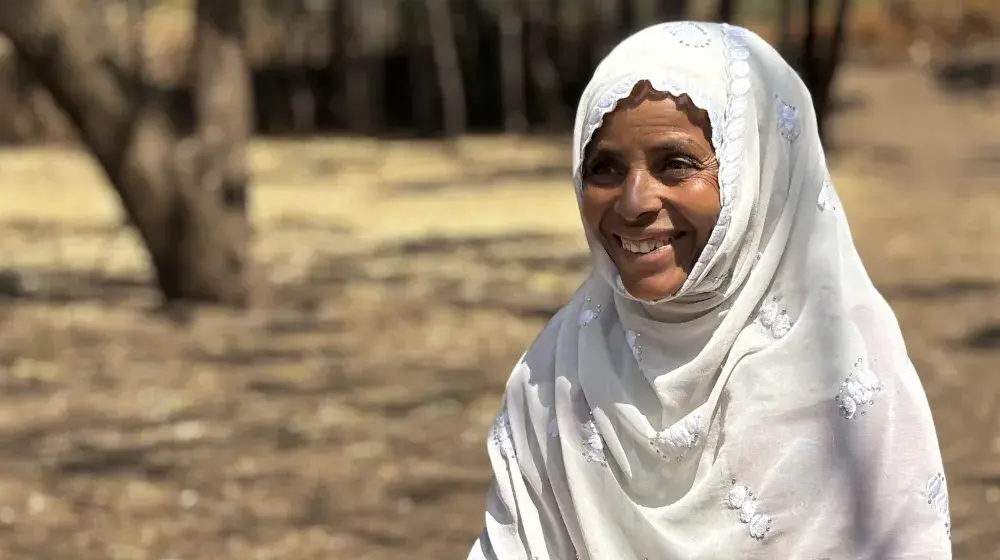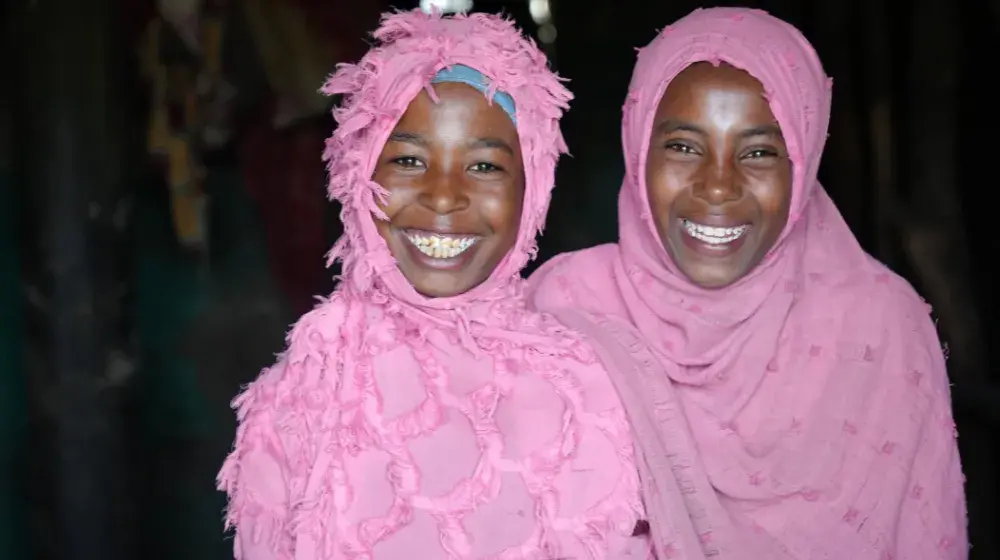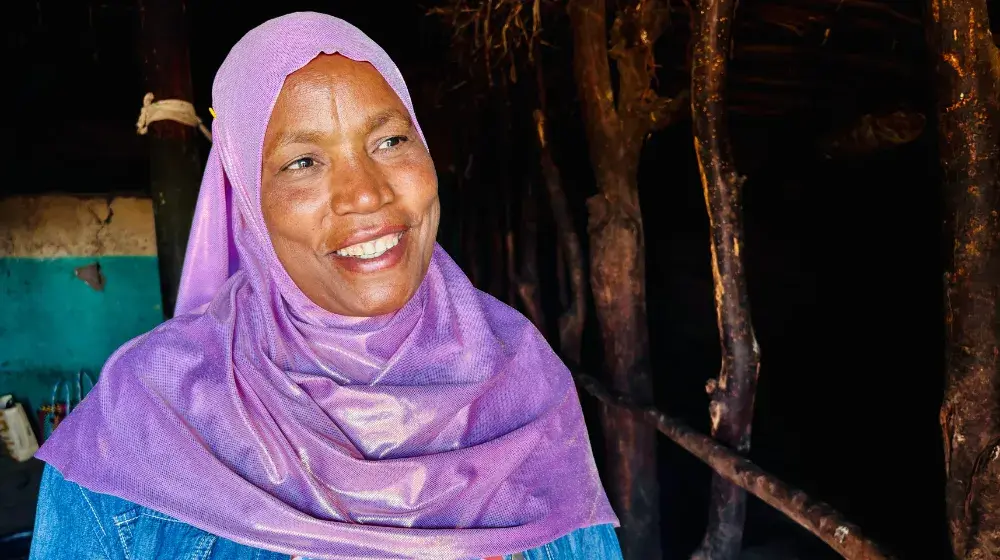Abala District, AFAR REGION: Hawa Abdella has circumcised countless girls and conducted numerous deliveries as a traditional birth attendant for more than thirty years. She does not deny the pain and the suffering that the girls whom she circumcised went through during the procedure and especially when they gave birth, as she was involved in both. “They were bleeding a lot during childbirth and we were not taking them to a health facility,” Hawa says. In fact, she muses, all this was considered as a cultural obligation that any Afar girl should go through and that she didn’t give it much thought.
In hindsight, Hawa rues the misery she has inflicted on scores of girls by being an agent of harmful practices. She owes this change of mind to her engagement in a programme that started in her locality a few years ago. Her participation in the integrated programme on the prevention of child marriage and female genital mutilation (FGM) taught her that the practice of FGM which she has so religiously conducted for more than one generation is not sanctioned by her religion. Hearing it from the religious leaders themselves at the community conversation sessions where she participates in was a revelation for her. She renounced the practice in no time.
It is now more than three years since Hawa stopped practicing FGM. It seems she very much wants to make amends for the sufferings she has meted out on women and girls out of ignorance. She is a facilitator in the community conversation sessions in her community, a major component of the integrated programme where an average 70 members of different sections of the community sit together every two weeks to discuss on practices like child marriage and FGM putting women and girls in harm’s way.
Integrated programme on prevention of child marriage and FGM
This programme which is being implemented in 13 localities in the Abala District of the Afar Region employs an integrated approach aiming to kill two birds with one stone. The programme is funded by the UN Association in Sweden and is overseen by the Region’s Women and Children Affairs Bureau. But much of the credit to the promising successes being registered by the programme goes to the efforts of influential members of the community like Hawa.
UNFPA piloted the integrated programme on prevention of child marriage and FGM in the Afambo District in the Region in 2012. Quite notable successes were registered where all the intervention localities in that district publicly declared abandonment of both practices after four years of implementation.
Repeated discussions and trainings on the harms of the practices as well as the pivotal role influential community leaders have played in clearing misconceptions around the practices have convinced many of the opponents of the social change to gradually change their positions. But, again, social change is not without its challenges.
Hawa admits that she was approached by some community members on a number of occasions to circumcise their daughters and conduct deliveries at home. But she says that the awareness and training she received from the programme has helped her to change her attitude and that she came to know that the practices do not have any value other that putting women and girls in misery. “I have also made my position very clear to members of my community that if anyone comes with a request to circumcise a girl I will inform the law enforcement bodies for legal measures to be taken,” Hawa says with determination.
Promoting safe motherhood
Hawa has also stopped conducting home deliveries and is now supporting the efforts at promoting institutional delivery which remains very low in the Region. “I am working closely with health workers such as Health Extension Workers to make sure that a pregnant woman delivers at the Health Centre in our district,” she says. Hawa has the numbers to call an ambulance service to take the pregnant women to the Health Centre and she is setting a very good example to other traditional birth attendants in her community.
Hawa considers herself fortunate to be part of the effort at abandonment of child marriage and FGM in her community. “The programme should continue as it is bringing lots of changes in my life and my community because it is sparing our daughters from harmful practices and enabling them to go to school,” she remarks.





